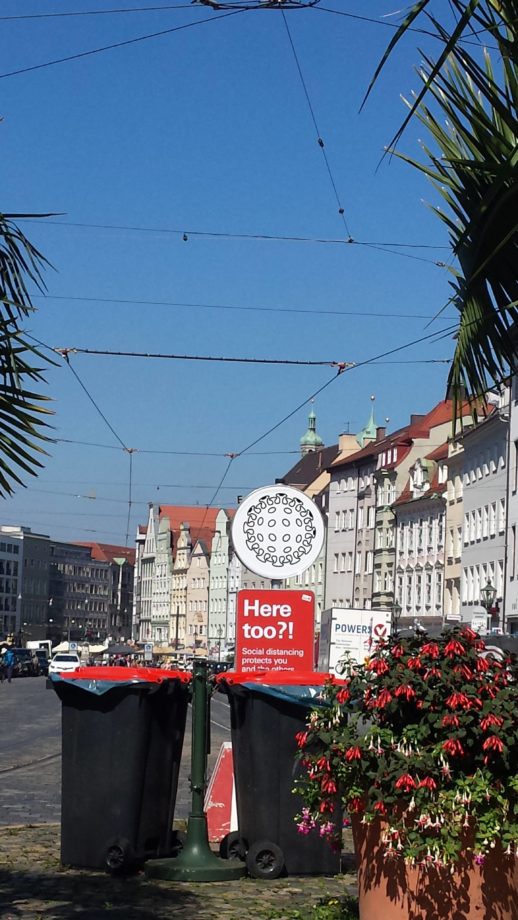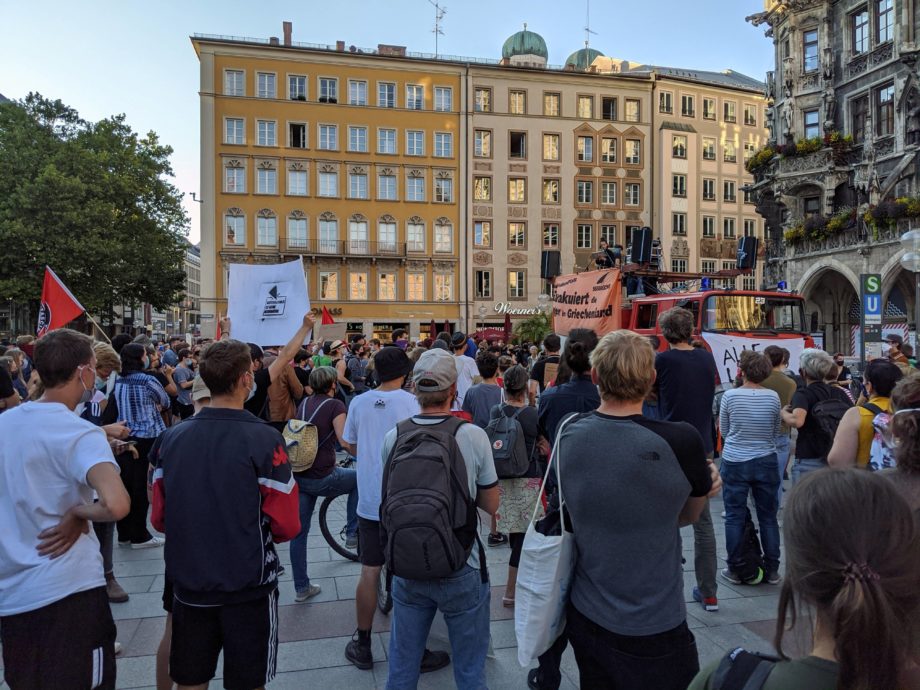Responsibilities beyond fieldwork
Morality and social distancing during the interview
This article aims to reflect on how fieldwork has changed due to the current COVID-19 pandemic. At the same time, it explores what it means to conduct an interview with “social distancing” and how the researcher is coping between the need for data collection and personal protection.
My current research project is about the role of digital technology in forced migrant’s inclusion and integration process. Drawing on actor-network theory and by focusing particularly on the entanglements between digital technologies, governments, migrants and host communities I am interested in spaces of digital-material autonomy and ask how digital technologies affect the agency of forcibly displaced people. I follow an integrated “socio-technical” approach that examines both the design and shaping of a digital technology and their interaction and use in migrants and host communities.
When the pandemic started, I just happily finished the first part of my fieldwork in Germany and returned to my home University in Italy (University of Padua) in early February. During the first part of the fieldwork where I conducted in-depth semi-structured interviews, I was participating in different events organized by civil society actors for migrants and refugees in order to get a closer look at my research topic, i.e. the processes of communication mediated by digital technology. My research focusses on digital media platforms and mobile applications. This required close contact with the persons in order to create trustful and transparent relations that my research could build on in the later stages.
In August 2020 I started the second phase of the fieldwork in a COVID-19 reality in Bavaria, Germany. Coming from the most affected country myself with all its precautions and restrictions, it was a serious decision for me to continue fieldwork in person.
What has changed?
Fieldwork in COVID-19 realms can be described as heterotopia in Foucauldian terms (1984:3). I understand heterotopia as extraordinary situations, that differ from normal conditions of social interaction, as something unfamiliar where we have to take precautions, limit our mobility together with social relationships, and better to stay home. In a certain way, the practices of mobility are intertwined with the fear and anxiety of the pandemic realities.

Picture 1. Augsburg city center, September 2020: the visual reminder of the necessity to keep distance even in open place. Copyright: Olga Usachova.
Another important issue is that of the increasing moral and ethical responsibility of researchers towards their interlocutors, as well as towards their own family members. In pandemic times, researchers come to experience everyday predicaments. Fieldwork becomes particularly concerned with mundane decisions related to health, social and emotional risks.
Social distancing during interview
During the first days of the second phase of fieldwork, it occurred to me that I had never noticed before that the simple gesture like shaking hands and showing a smile during the interview can be an important element to better connect and build the trust with interviewees. Now, after conducting an interview with a young man from Syria I have realized that masks have become a barrier to understand facial expression and relate to interlocutors’ signalled or silenced emotions. In this way, the tone of voice became a new way of encouragement or discouragement during conversations.
Moreover, the localities of interviews have changed from cozy and intimate places (Birch & Miller, 2010), to the more open spaces (i.e. open doors and airing windows due to COVID-19 requirements). With one of the municipality representatives, I had to conduct an interview in a spacious conference room where only me and the interviewee were placed. At the same time, taking the elevator one by one, as only one person is eligible to be in a small closed environment, and later on precisely guided to the biggest conference room with a presence of disinfectant on the desk, was creating a restricted and highly regulated atmosphere.
Also, while participating in a demonstration to support the refugees in Moria, Greece, which was held in Munich, there has been a recognizable collective social distancing practice that obstructed brief conversations with persons regarding their thoughts and motivations to take part in this event.

Picture 2. Demonstration to support refugees in Moria refugee camp in Greece (Moria evakuieren, Jetzt! Alle Gefluchteten! #WirhabenPlatz), 9 September 2020: backs of a big crowd in Marienplatz, Munich. People were maintaining the distance and wore masks. Copyright: Olga Usachova.
Negotiating the personal risk and responsibility for my family members, I have decided to limit my social contacts in the field. Moreover, writing this passage from self-isolation at home due to the symptoms of increasing body temperature of one of my family members, my previous consideration of constantly negotiating boundaries between fieldwork and professional interest now has to shift to prioritizing my own health and the well-being of my family.
Written on 05 October 2020.
Olga Usachova is a Ph.D. student in Social Sciences, Interactions, Communication, Cultural Constructions at the Department of Philosophy, Sociology, Education and Applied Psychology (FISPPA) University of Padua, Italy. Her main area of interest is socio-technical assemblages in the field of migration and integration of migrants in a host community, as well as the social impact of mobile applications. She works on the digitalization of forced migration by investigating the role of digital technology in the social inclusion of refugees in host societies with the supervision of Prof. Federico Neresini. She can be reached at olga.usachova [at] phd.unipd.it.
References
Birch, Maxine & Miller, Tina. 2010. Inviting intimacy: The interview as therapeutic opportunity. In: International Journal of Social Research Methodology, 3 (3), 189-202, doi:10.1080/13645570050083689.
Foucault, Michel. 1984. Of Other spaces: Utopias and Heterotopias. In: Architecture/ Mouvement/ Continuite. Accessed 30 September 2020. https://web.mit.edu/allanmc/www/foucault1.pdf

































